Thanks for asking @akryum. I didn’t give much thought to how to structure the feedback below, I just decided to free-form it, and walk you through my thought process a little. Conversation-form if you like.
Deciding to go the Vue + Meteor route, you’re going to be almost on your own. This is I think a different experience when attempting to use a React + Meteor setup.
.
When attempting to learn something new or figure something out on my own, if generally try to first do a google search and READ everything I can find – or watch videos.
These are my search results for Vue + Meteor, I commented inside the image too.
No real posts or info outside of your own personal work and efforts. There’s some, but sparse. That tells me if I can’t get YOUR time, I’m somewhat on my own here. No real posts or deep dives by anyone else, nothing current, nothing to READ and no VIDEOs to watch covering the pain points I might run across with the Vue + Meteor integration.
.
In my case, I might have a unique situation, I’ll be migrating from Blaze to Vue, and can’t kick out all my Blaze templates at once.
.
So the only resource I really have, your ingration lib here: GitHub - meteor-vue/vue-meteor: 🌠 Vue first-class integration in Meteor has a link to the only real up to date demo.
Looking at the example project – because that’s mostly-all I have to go on it seems – the code looks to cover the most of the basics – great.
Another screen-shot, this time from the Demo project:
.
Now that I know the only example is using vue-router, I’ll need to figure out how to use FlowRouter with your latest Vue + Meteor integration lib GitHub - meteor-vue/vue-meteor: 🌠 Vue first-class integration in Meteor.
Here’s another search to try to track this down, Meteor Vue FlowRouter here. Found just one post:
Let us look inside. As usual, you’re the only one that provides guidance on Vue + Meteor integration. All these links you provided to @nicooprat seem to be okay – over a year old but still might be valid – but maybe overwelming for someone testing out the waters. Tracking down how to get things up and running easily seems to be a challenge! It seems @nicooprat decided he might try to track this down some day, I wonder did he ever?
.
My point I suppose is all this running around and digging for something like FlowRouter + Vue + Meteor – is, well a time killer. And I’m sure trying to shoe-horn your example demo with a FlowRouter + Blaze + Vue + Meteor setup will be a challenge as well.
With the resources that are out there now, maybe if I stay on the exact path that is in the demo I’ll be in better shape – maybe a green-field project where I have no legacy code, and can use the exact tech you’re using in the one up to date example, I’ll fair better.
.
Contrast this with a search for React + Meteor integration. Also, searching for React FlowRouter Meteor returns similar quality resources.
The relatively up to date course on React + Meteor really tip the scales. I know there are courses on Vue, but not Vue + Meteor.
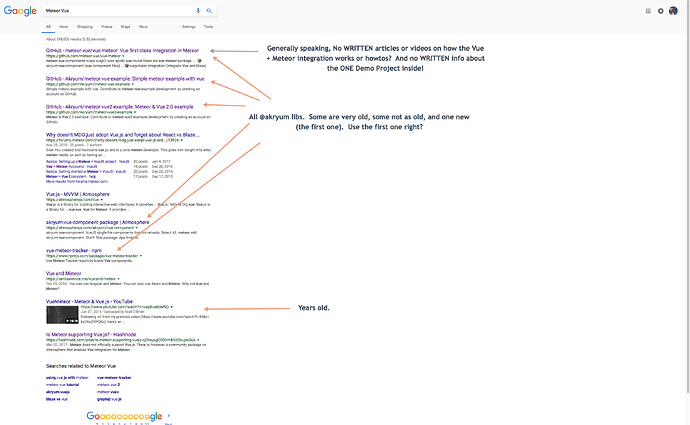
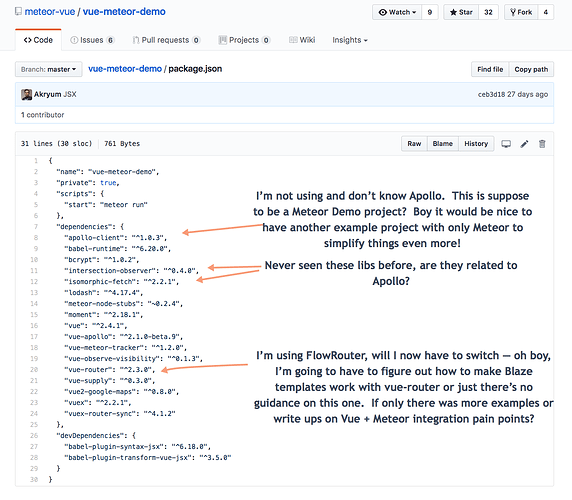
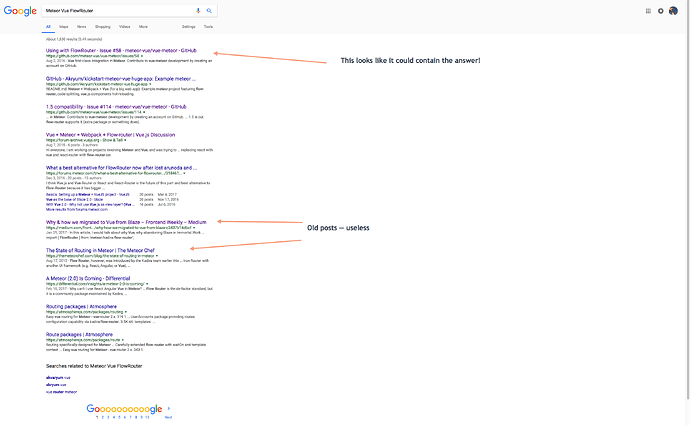
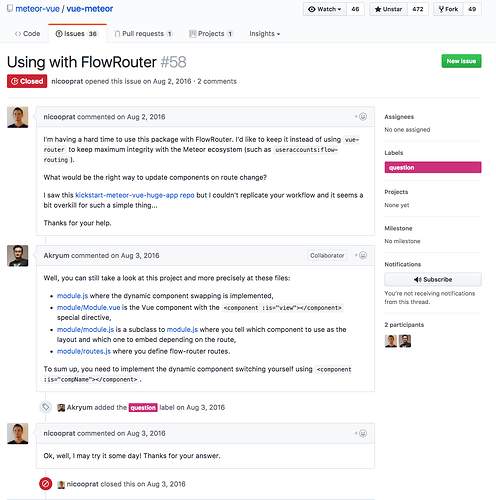
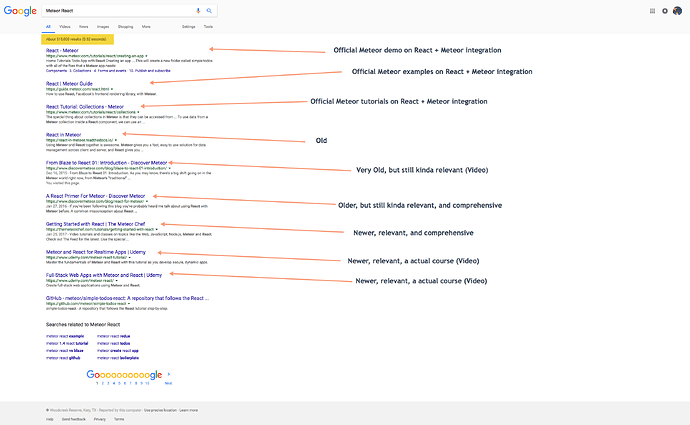
 That’s why choice is great.
That’s why choice is great.